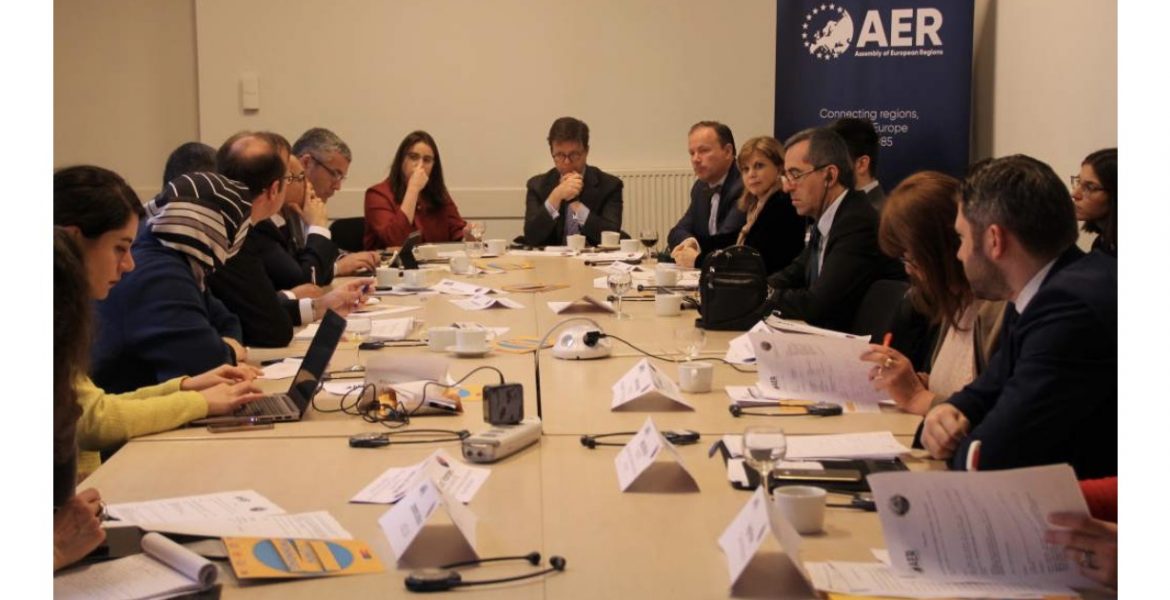The refugee situation in Europe and its neighbourhood continues to be high on the European political agenda. There are many actors at different levels providing a multi-layered response to the refugee situation, writes Hande Bozatli.
Among these actors the role of Local and Regional Governments is at the forefront of offering public services to refugees.
At the panel organised in colaboration with Friends of Europe and the European Parliament Turkish Forum in February 2018, AER President Magnus Berntsson stated that there are large differences in the capacities of municipalities to host large numbers of refugees. When considering the disparities in resources, the number of people capable of mobilisation, and past experience, certain municipalities are more capable of hosting refugees than others.
A press release of the European Committee of the Regions (CoR) on migration and asylum issued on 21 March 2018 stated that “The European Union needs to increase support for cities and regions and border countries that are on the front line of managing migration.”
The assembly called for local and regional authorities to be involved in every stage of framing and implementing the EU’s migration-related policies, because of their role in taking care of new arrivals and then integrating them. In addition to asking for more funding, training and technical support for cities and regions, the European Committee of the Regions suggested that the EU should examine the possibility of “transferring responsibility for examining asylum applications from the national to the EU level”.
Karl-Heinz Lambertz , the President of the European Committee of Regions (CoR), said: “ Migrants and refugees are not numbers; they are people that should be protected. It is a European challenge that needs European investment, which is why the next EU budget, after 2020, must increase and why EU regional funds – its cohesion policy, which supports social inclusion – must continue to be a strong pillar of Europe’s future.”
Speaking during the plenary debate, Commissioner Avramopoulos said there was a need for a “radical re-think ” on the integration of migrants in Europe across all policy areas, as well as improved access to EU funds for cities and regions. “Local and regional authorities play a positive role in creating spaces for exchanges between migrants and societies, ensuring social inclusion and active participation in the host society. But you cannot and should not be doing this alone.”
In the conference organised by the Conference of Peripheral Maritime Regions (CPMR), Mr. Antoni Servera; Director General for Cooperation of the Balearic Islands Government, concluded the conference by stating that Regions were making the extra effort to receive and integrate refugees. He also added that Regions also had the responsibility to fight against xenophobia and discrimination, since migration is a phenomenon that will continue into the future.
The European Parliament Turkey Forum in collaboration with the Assembly of European Regions(AER) organised a workshop in Brussels to exchange best practices between European cities and Turkish municipalities which host more than 3.5 million registered Syrian refugees.
Participants of the workshop shared their insights, experience and recommendations from different parts of Europe about local responses to refugees and discussed how to foster empowerment and collaboration among the regions.
All experience is showing that when European cities and regions discuss together, they can make better use of the potential and opportunity to successfully address the challenge of hosting and integrating asylum seekers, refugees and other migrants. Networks of cities and regions seem to be providing the most practical platforms to facilitate these discussions and solutions at present.
The Author, Hande Bozatli, is the Regional Business and Government Editor of EU Political Report.




